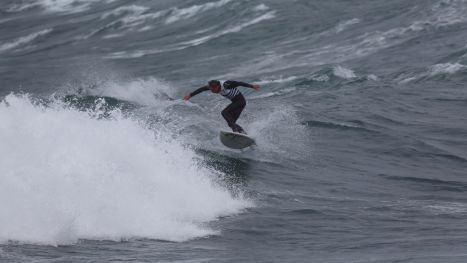Get in the Comfort Zone!
One shouldn’t be there, should one? Tut tut! Bad, bad - the comfort zone comes right from the devil. Anyone staying there must be rescued, because lurking there is frugality, jog trot, and idleness. If you are there, there will be no change, not to speak about high performance – that is the general tone.
A good manager will get people out there, and who hasn’t heard a manager say after the fight of a glorious battle: „Well, we all had to get out of our comfort zone...“. For the employees the most important thing is not to get caught in the comfortzone, or else one might suspect that they are not being productive, which may have fatal consequences.
So there are regular evictions of the comfort zone: „Get out of here, and knuckle down!“ Some are pushing, others are escaping – the main thing is not to be in the prohibited area.
And this is, by your leave, rubbish. The comfort zone is vitally important. Without it, two things that are essential for repeated high performance over a long time fall away: ryhthm and reserve. In other disciplines this is absolutely self-evident:
- Top athletes always make sure that they achieve a balance between training and regeneration phases. It is common knowledge that the level of performance drops when athletes over-train.
- Gestalt Theory claims that there is a so-called Gestalt Cycle describing the processes in a self-regulating healthy organism. This cycle shows repeated phases of rising and dropping levels of activation and arousal, creating a rhythm.
- Interacting jazz musicians are at their best when they stay below their limit; then they command the necessary reserves to be able to react to impulses coming from the band, to create spontainiously, and to maintain ease and grace in playing.
- You can only breathe with rhythm. Ever tried just to inhale all the time?
- Even top athletes stay below their limit most of the time; the absolute maximum is only accessed in deciding peak situations. It is by no means a permanent state.
When Roger Federer says things like „the last couple of weeks have been very exhausting, but I was able to recover well by just doing nothing for two weeks, and I feel fresh now for the important things coming“, we al nod in appreciation of such wise professional planning. When a manager says something like this... it would be worth a try, I say.
When you act at your limit, you get erratic. Then only a tiny bit of more pressure is needed to make your system break down. To act at your limit or even passing it is okay in learning situations that help you expand your repertoire, but not in every day routine. If you look at the workload situation in many companies today, you have to assume that they are acting on the edge to breakdown, and not only in peak situations but all the time. If risk managers track these risks at all, they still seem to rate them acceptable.
The eviction of the comfort zone in organizations is like smoking für individuals: they get more and more breathless and slowly kill themselves. In both cases one wonders why intelligent people do this. Smokers argue with the pleasure, companies argue with pressure from the market or with the thrill that maximum performance can give, and in both cases social norms, customs, and social affiliation, that is culture, is very powerful. What is the social standing of individuals allowing themselves regeneration – maybe even during working hours?
My advice for companies looking for long term top performance: bring life into the comfort zone! It is the gasoline station that enables people to do well in the other zones. Don’t design it for permanent stay, but allow transit traffic, or else „the big one“ might become much more probable for you than for the residents of San Francisco. Learn from athletes and musicians – but don’t let them just talk about maximum performance in peak situations all the time, but also about the pre-conditions for them to occur. Make peace with the comfort zone, benefit from it – and your organization will reward you with increased performance.


